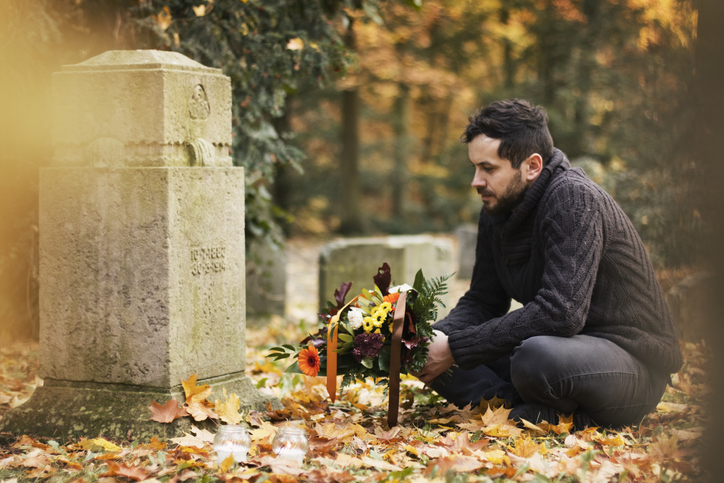In the Catholic Church, the month of November is traditionally dedicated to the Holy Souls, honored in a special way on November 2nd with the Commemoration of All the Faithful Departed (more commonly known as “All Souls Day”). This month, therefore, we pay particular attention to our duty as Christians to pray for the dead: those who have gone before us in this life and are now in need of our intercession in order to attain eternal life with God.
But why do Catholics pray for the dead? Well, in short, it’s because we believe in the doctrine of purgatory. However, in my conversations with many faithful and holy Catholics, I get a sense that most people misunderstand or simply “don’t get” what the Church teaches us about purgatory.
So—what is purgatory? According to the Catechism of the Catholic Church, purgatory is “a state of final purification after death and before entrance into heaven for those who died in God’s friendship, but were only imperfectly purified; a final cleansing of human imperfection before one is able to enter the joy of heaven.” A soul which has completely rejected God chooses for itself the punishment of hell. A soul which is purified completely of sin in this life, on the other hand, is brought immediately into eternal rest in heaven (and is therefore a saint, whether canonized or not!). But for the other souls—not damnable, but not yet perfected in grace—the Church recognizes a period of purification.
This purification is entirely unlike the punishment of hell in that a soul in purgatory is de facto destined for heaven, but must undergo cleansing from all sin before spending eternity in the unbridled presence of God. How we will experience that purification may indeed be a “refining fire” (your guess is as good as mine!), but there is one very key difference between that and the “fires of hell:” the undying hope of eternal salvation.

One of the effects of the Protestant Reformation was to throw out this doctrine of purgatory, which in my humble opinion was a grave mistake. See, Catholics see purgatory as an extension of God’s unfailing mercy; to throw it out is tantamount to saying that all the souls unworthy of immediate acceptance to heaven (which would be anyone with any attachment to sin left in them!) is banished to hell. I don’t know about you, but I would much rather believe in a God who mercifully purifies those souls not in obstinate refusal of that mercy!
Traditionally, then, the Catholic Church has always understood itself to be comprised of three states: the Church Triumphant (i.e. the saints already rejoicing in heaven), the Church Militant (i.e. us still fighting it out here on earth), and the Church Suffering (or the Church Penitent/Expectant, i.e. those souls currently experiencing purification in purgatory). It has always been understood that one of the great tasks entrusted to the Church Militant is to pray for the eternal repose of the souls of the Church Suffering, to help them by our prayers to attain that purification necessary to enter heaven. It is our spiritual work of mercy, praying for the living and the dead, that aids souls in reaching God.
For that same reason, you may have heard of Masses being “offered” for a deceased loved one (at Cathedral, our practice is to share the intention of the Mass during the petitions). As the Catechism states, the Church has always “honored the memory of the dead and offered prayers in suffrage for them, above all the Eucharistic sacrifice, so that, thus purified, they may attain the beatific vision of God” (emphasis mine). To have a Mass offered for a deceased parent, sibling, child, or friend is perhaps the most loving and fitting way possible to remember your loved ones, for by it, the innumerable and eternal graces of the Mass are applied to their souls.
Unfortunately, fewer and fewer people are making the sacrifice to have Masses offered for their relatives and friends. The process is actually quite simple. The “offering” is traditionally ten dollars (which is our participation in the sacrifice of the Mass), and dates can be requested by contacting your local parish’s secretary.
As our Gospel reminds us, our God is “not God of the dead, but of the living.” May we always remember our responsibility and our privilege to aid our brothers and sisters through their final purification into eternal life, where at last they may see God face to face!
Father Michael Friedel is a Parochial Vicar for the Cathedral of the Immaculate Conception.